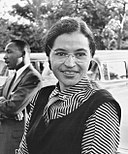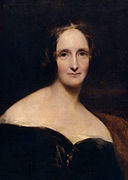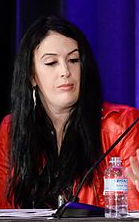 March 8 sees both the publication of Ann Oakley’s Women, peace and welfare and International Women’s Day.
March 8 sees both the publication of Ann Oakley’s Women, peace and welfare and International Women’s Day.
In the book, Ann tells the inspirational untold stories of women who’s work and vision of a more humane way of living have influenced social reform and welfare.
Watch Ann talk about the lives of the following inspirational women from her book by clicking the links below:
Emily Hobhouse, a British welfare campaigner and international pacifist;
Emily Balch, an economist who was who was sacked from her university for engaging in the international peace movement;
Aletta Jacobs, the first female Dutch physician;
Rosika Schwimmer, a Hungarian pacifist feminist.
Following Ann’s lead, we asked Policy Press staff and authors who their inspiring women are. Watch the slideshow above and read on for their reasons for their choices.
Our free journal articles for March also focus on research about women and gender. Find out more on our website.
Win a suffragette pincushion
We have ten suffragette pin cushions to give away. Tweet the name of your inspiring woman with the hashtag #policypressforprogress to be in with a chance to win one.
Our inspiring women
 Mary Wollstonecraft by Alison Shaw
Mary Wollstonecraft by Alison Shaw
Mary Wollstonecraft, author of A Vindication of the Rights of Woman (1792) said “It is justice, not charity, that is wanting in the world”.
I am not someone who really ‘feels’ history, and I am drawn to contemporary writing, but finding Mary Wollstonecraft’s book was a rare exception. A Vindication of the Rights of Woman was one of the earliest works of feminist philosophy. She challenged the view that women were ‘ornaments or property to be traded in marriage’ and that they deserved the same fundamental rights as men. Mary argued that women were not naturally inferior to men, but appear to be only because they lack education and provided concrete plans for a national education service. Her stance is one of social justice, something that has been a major part of my world view since reading her work 35 years ago.
“Her stance is one of social justice, something that has been a major part of my world view since reading her work 35 years ago.”
Her influence has echoed down the ages and she inspired many critical thinkers from Virginia Woolf to Amartya Sen. She died young, aged 38, just after giving birth to her second daughter who became Mary Shelley, author of Frankenstein (Rebecca Tomlinson’s choice below!).
Image: John Opie [Public domain], via Wikimedia Commons
 Asma Jahangir by Helen Kara
Asma Jahangir by Helen Kara
Asma Jahangir was an activist in Pakistan, a country with an appalling record of oppressing women. Born in 1952, she became a lawyer in 1980 and co-founded Pakistan’s first all-women law firm. She defended women facing criminal charges as a result of being raped, choosing their husbands independently, or seeking a divorce from a violent man.
Undeterred by police beatings or house arrest, she also fought against honour killings, child labour, and capital punishment. Jahangir co-founded the Human Rights Commission of Pakistan, and even found time to become an author of two books, one criticising Pakistan’s anti-women legislation, the other arguing for rights for Pakistan’s child prisoners. Very sadly, Jahangir died of a heart attack on 11 February.
Image: By Lymantria (Own work) [CC BY-SA 3.0] via Wikimedia Commons
 Etty Hillesum by Sarah Bird
Etty Hillesum by Sarah Bird
Etty was a young Jewish Dutchwoman, who died at Auschwitz aged 29. Her diary, started in 1941, contains the most inspiring, humane writing I have ever come across. Unbelievably she chose to go to Westerbork, the Nazi transit camp for Jews awaiting deportation, so that she could be with her people, and not hide. In her diary she documents everything, refusing to turn away from the horror of her experience, but also finding beauty and hope in what is around her, in an amazing personal spiritual transformation. She was sexy and spirited and unflinching.
“Her diary, started in 1941, contains the most inspiring, humane writing I have ever come across.”

Ann Oakley by Zoe Young
When Ann Oakley published ‘Housewife’ in 1974, women’s lives and labours inside the home had barely featured in historical or sociological accounts of work. Men worked, women did housework. Ann Oakley’s rich and vivid portraits of Patricia, Juliet, Margaret and Sally’s domestic lives, told in their own words inspired me to write women’s lives and experiences in the same way. Few women would call themselves housewives today, but the deeply gendered issues around how domestic and care work is shared within families have proved remarkably resilient. I am researching and writing about them forty-four years on.
 Mo Mowlam by Jo Greig
Mo Mowlam by Jo Greig
I wish I’d been a fly on the wall during some of the Northern Irish discussions, Mo Mowlam’s straight talking, non-nonsense pragmatism always filled me with awe.
Image: By Plainsense (Own work) [CC BY-SA 3.0], via Wikimedia Commons)
 Ellen Wilkinson by Diane Reay
Ellen Wilkinson by Diane Reay
Working-class, feminist and anti-racist, my heroine is ‘Red Ellen’. She was involved in women’s suffrage, and helped found the British Communist Party. Fiercely committed to the Republican cause in the Spanish civil war, she led the Labour Party’s anti-fascist campaign. Among many outstanding achievements was her leadership of the iconic Jarrow Crusade and her appointment as first female Minister of Education. In this latter role she oversaw the introduction of free school milk and raised the school leaving age from 14 to 15. But what characterised her entire career was a passionate commitment to the ‘working class man and woman’, a strong streak of non-conformity and a ferocious bravery that would brook no collusion with injustices of any kind.
Image: by Bassano Ltd [Public domain], via Wikimedia Commons
 Rosa Parks by Kalwant Bhopal
Rosa Parks by Kalwant Bhopal
On December 1, 1955 Rosa Parks refused to give up her seat to a white man on a bus in Montgomery, Alabama. For me, this single act was one of courage and strength and Rosa must have known full aware of the consequences this would have on her life; she and her husband both lost their jobs and had to move away from Alabama. I have great admiration and respect for her decision to take this single action which had a significant impact on the Civil Rights movement.
 Mary Shelley by Rebecca Tomlinson
Mary Shelley by Rebecca Tomlinson
Apart from the amazing and enduringly popular book she wrote, Frankenstein, Mary spent most of her life in the shadow of her husband and the scandal he bought to their family. Despite being a great writer, she devoted most of her time to publicising her husbands work and caring for her family. Despite her life being full of tragedy (Percy Shelley’s untimely death and the death of 3 of her children) Mary carried on writing and only recently scholars have shown increasing interest in her literary output, particularly in her novels, which include the historical novels Valperga (1823) and Perkin Warbeck (1830), the apocalyptic novel The Last Man (1826), and her final two novels, Lodore (1835) and Falkner (1837).
Image: Richard Rothwell [Public domain], via Wikimedia Commons)
 Rhianna Pratchett by Nick Levett
Rhianna Pratchett by Nick Levett
She’s inspiring to me for her work as a video game writer. The gaming industry is super male-dominated so it’s really cool to see a strong female presence doing great work on notable games and projects. Another reason she inspires me is that although she’s the daughter of Terry Pratchett, she refuses to live in his shadow or be defined by that – she’s forged her own career in her own sphere and that’s really impressive and rare.
Image: by Official GDC (_TXT6469) [CC BY 2.0], via Wikimedia Commons
 Ursula Le Guin by Danny Dorling
Ursula Le Guin by Danny Dorling
I found it very hard to read. I did not properly begin to read until I was aged eight, and then I read fiction. Ursula Le Guin’s books were different to other books that children read in the 1970s. They took your imagination further, they were not about reinforcing or returning to power a hierarchy, but overturning it. It was not until I was much older that I learnt that Ursula Le Guin did not ‘just’ write for children. But write well for children and you can change the way a generation thinks. After she died I learnt that she had written this: “You cannot buy the revolution. You cannot make the revolution. You can only be the revolution. It is in your spirit, or it is nowhere.” — The Dispossessed, 1974.
Image: Flickr Creative Commons Attribution 2.0 Generic (CC BY 2.0)
“You cannot buy the revolution. You cannot make the revolution. You can only be the revolution. It is in your spirit, or it is nowhere.” — The Dispossessed, 1974.
 Johanna Westerdijk by Liza Mügge
Johanna Westerdijk by Liza Mügge
Johanna Westerdijk was a Dutch plant pathologist and appointed as the first female professor in the Netherlands at the University of Utrecht in 1917. Westerdijk supervised 55 PhD students in a period of 35 years, almost half of them were women. On top of her award-winning research she broke many glass ceilings and continues to be a role model for women in academia. “Even a mold dies from a boring life”, she said. She is known for her humor, loving to party, drink and dance. Her motto was: “Working and partying creates clean minds.” I couldn’t agree more.
 Lucy Parsons by Lisa Mckenzie
Lucy Parsons by Lisa Mckenzie
Lucy was an American mixed race, African and native American woman, her husband Albert Parsons was hung for the Chicago Haymarket uprisings, Lucy was a anarchist and understood class solidarity and the class war that was being waged upon working men and women, while the middle class suffragists were vote begging, Lucy was going around the US and Europe calling for a working class revolution, the Chicago authorities said that she was more dangerous than a 1000 rioters, the FBI ensured that Lucy Parson’s writing and her memory were lost to history.
“I have been carrying a banner around for the last 5 years with her quote ‘We must devastate the avenues where the rich live’.”
I have been carrying a banner around for the last 5 years with her quote ‘We must devastate the avenues where the rich live’. In today’s austerity, privatisation of public services and spaces, the housing crisis and the class cleansing of working class people out of the spaces the middle class value Lucy Parsons is more important and more relevant today than the vote begging and liberal reformism than our political leaders today or past.
 Alexandra Kollontai by Michael Lavalette
Alexandra Kollontai by Michael Lavalette
Alexandra Kollanti (1872-1952) was a writer, a novelist, a theorist, a socialist activist and a Commissar in the early Soviet Republic.
She was drawn into public work in 1894 with the Political Red Cross – a radical welfare organisation. She gradually became a major figure in the Russian socialist movement, playing significant roles during the Russian Revolution, the Civil War and the formation of the socialist republic. An economist, a linguist and a social theorist, she is best known for her writings on women’s liberation and socialism and her views on human sexuality and freedom.
In 1918 she was appointed Commissar for Welfare. Under her leadership married women were granted more rights, as were children of single women; divorce was granted on request and abortion was legalised; homosexuality was legalised and free public child care set up.
 Boadicea by Janice Morphet
Boadicea by Janice Morphet
Why Boadicea? When I was at primary school in Islington in the 1950s, our headmaster was a northern classicist who was never seen in anything other than a three-piece suit. However, there were many days when he came into our classroom to extol the virtues of Boadicea leading her tribes into battle and defeating those against her. She was a woman to be reckoned with and he said that this was celebrated through her statue outside Parliament on Westminster Bridge. Boadicea was the only role model our Headmaster’s offered … and girls always did well at our school…
Image credit: By Joseph Martin Kronheim (1810–96)[1] [Public domain], via Wikimedia Commons


0 Responses to “Our inspiring women for International Women’s Day 2018”